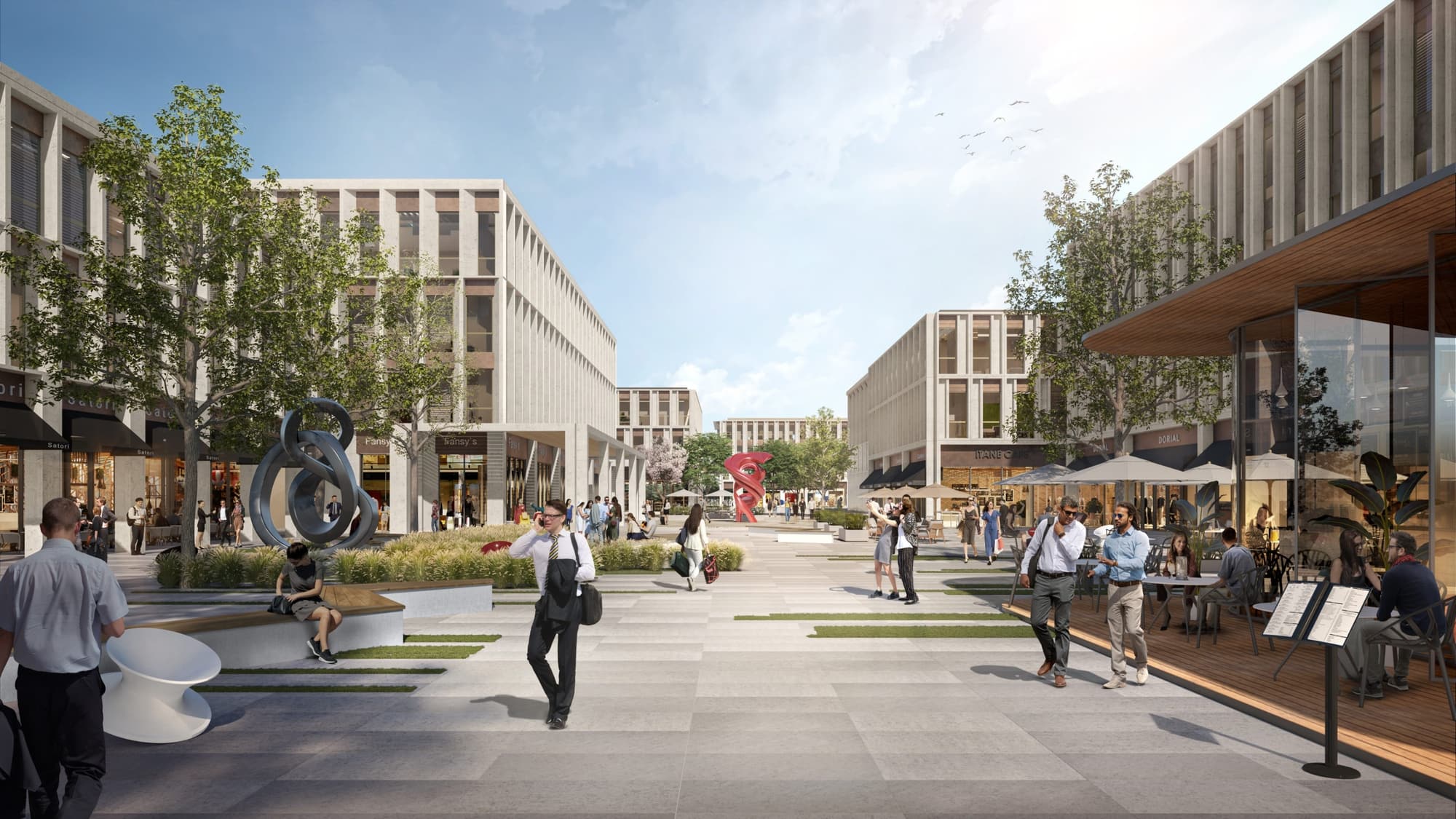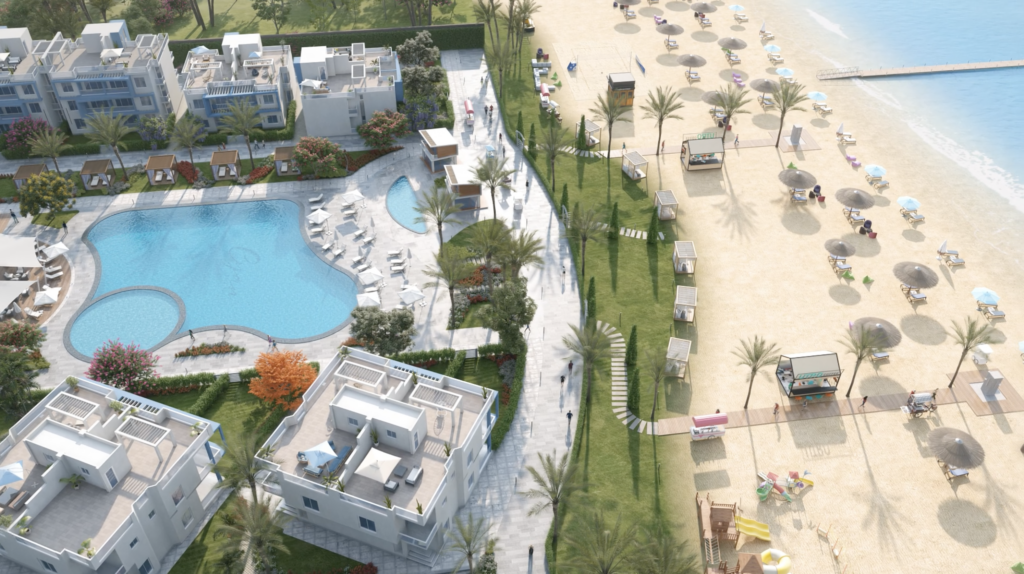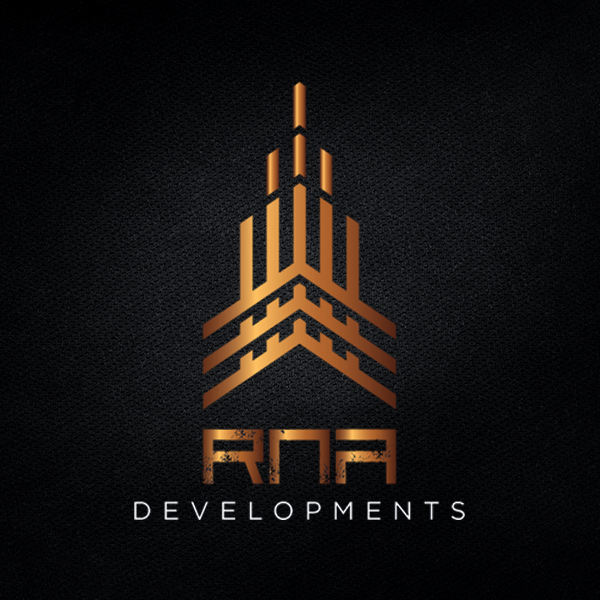United for Development Egypt is a joint stock company specializing in real estate and urban development. Since it began operations in 1975, the business has grown to become one of the top players in the Egyptian real estate industry. United for Development Egypt has a strong reputation for delivering luxury projects and providing high-quality service to its clients.
The company is committed to supporting Sustainable Development Goals (SDGs) and works closely with the United Nations (UN) to achieve these goals. United for Development Egypt offers a diverse range of real estate and commercial projects that meet the needs of different individual and corporate customers. The company’s projects are designed to be sustainable and environmentally friendly, and they are built with the latest technology and materials.
United for Development Egypt has over 50 years of experience in the real estate market and has built a strong reputation for excellence. The company’s success is due to its commitment to its clients, dedication to quality, and focus on sustainable development. For anyone interested in the Egyptian real estate market, United for Development Egypt is a company that is well-positioned to grow and thrive in the years to come. Their work is definitely worth watching.
Historical Context
Egypt has a rich and complex history that has shaped its development journey. Recently, the country has experienced significant political upheavals, which have profoundly impacted its people and economy.
The 2010-2011 Revolutions and Their Impact
2010 saw Egyptians protesting in the streets against President Hosni Mubarak’s administration, which had ruled for almost thirty years. The protests quickly turned into a revolution, with millions demanding political reform, greater freedom, and ending corruption.
After 18 days of protests, Mubarak was forced to step down, and a transitional government was put in place. Nonetheless, there were still frequent protests and altercations between protesters and security personnel, making the political climate unstable.
The revolution’s impact was significant, both in terms of its immediate effects and long-term consequences. In the short term, the revolution led to political uncertainty and economic instability. Numerous enterprises had to shut down, and the country’s main source of income—tourism—saw a sharp fall.
In the long term, the revolution paved the way for further political change, including adopting a new constitution and electing a new president. However, transitioning to a more democratic system has been slow and difficult, and the country faces many challenges.
Egypt’s Development Journey from 2011 to 2020
In the years following the revolution, Egypt embarked on a development journey to address the country’s economic and social challenges. The government implemented several reforms, including reducing the budget deficit, increasing foreign investment, and improving the business environment.
Despite these efforts, the country’s economic growth remained sluggish, and many Egyptians struggled with poverty and unemployment. In 2013, another wave of protests led to the ousting of President Mohamed Morsi, and the country once again found itself in a period of political turmoil.
In the following years, the government pursued economic reforms, reducing subsidies and increasing private-sector investment. The country’s economic performance improved, with growth rates reaching 5.6% in 2019.
However, the benefits of this growth were not evenly distributed, and many Egyptians continued to face economic hardship. The COVID-19 pandemic further exacerbated these challenges, with the country’s economy contracting by 3.5% in 2020.
Overall, Egypt’s development journey from 2011 to 2020 has been marked by significant challenges and upheavals. While the country has made progress in some areas, much work must be done to ensure that all Egyptians have the opportunity to thrive.
Sustainable Development Goals in Egypt
Alignment with the SDGs
Egypt is committed to achieving the United Nations’ Sustainable Development Goals (SDGs) by 2030. A group of 17 global goals known as the Sustainable Development Goals (SDGs) aim to end poverty, protect the environment, and ensure that everyone lives in harmony and prosperity. Egypt has aligned its national policies and development strategies with the SDGs, recognizing that sustainable development is key to achieving its economic and social goals.
Progress and Challenges
Egypt has made significant progress towards achieving the SDG targets, particularly in poverty reduction, health, education, and gender equality. However, significant challenges remain, including climate change, inequality, and sustainable consumption and production. The COVID-19 pandemic has also posed significant challenges to achieving the SDGs, exacerbating existing inequalities and hindering progress.
Sustainable Development Strategy
Egypt’s Sustainable Development Strategy, known as Egypt Vision 2030, outlines the country’s priorities and policies for achieving the SDGs. The strategy focuses on inclusive economic growth, social justice, and environmental sustainability to achieve a high standard of living for all Egyptians by 2030. The strategy also emphasizes the need for strong partnerships between the government, private sector, civil society, and international organizations to achieve the SDGs.
In conclusion, Egypt is committed to achieving the SDGs by 2030 and has made significant progress. However, significant challenges remain to be addressed, particularly in climate change, inequality, and sustainable consumption and production. Egypt’s Sustainable Development Strategy provides a roadmap for achieving the SDGs and emphasizes the importance of strong partnerships for sustainable development.
Governance and Institutional Framework
Government Action Programme
The Government of Egypt has developed a comprehensive action program for sustainable development, which includes policies and strategies to promote economic growth, social development, and environmental sustainability. The program’s objectives include bolstering institutions, encouraging good governance, and increasing stakeholder participation in the decision-making process in order to foster an environment that is conducive to sustainable development.
Coordination Among Stakeholders
All parties involved in sustainable development, including the public and private sectors, international organizations, and civil society, must participate and work together for it to be successful. The Government of Egypt has established mechanisms for coordination and collaboration among these stakeholders to ensure the effective implementation of the national sustainable development agenda. These mechanisms include regular consultations, workshops, and partnerships to exchange information, share experiences, and mobilize resources.
Transparency and Accountability
Transparency and accountability are essential to good governance and sustainable development. The Government of Egypt has enhanced transparency and accountability in managing public resources and implementing sustainable development policies and programs. These measures include the establishment of legal and regulatory frameworks, adopting international standards and best practices, and promoting public participation and access to information.
In conclusion, the Government of Egypt has made significant efforts to promote good governance, stakeholder coordination, transparency, and accountability in pursuing sustainable development. These efforts are critical to achieving the national sustainable development agenda and contributing to the global sustainable development goals.
Economic Policies and Financing for Development
Financing Flows and Development Cooperation
United for Development Egypt has taken significant steps towards achieving sustainable economic growth by implementing policies encouraging private sector participation, better macroeconomic and fiscal resilience, and a greener growth trajectory. The government has received US$700 million in Development Policy Financing (DPF) from the World Bank under the “Generating Resilience, Opportunities, And Welfare for a Thriving Egypt” program to support these efforts.
In addition to this, the government has developed the country’s first Integrated National Financing Framework (INFF) in collaboration with the United Nations Development Programme (UNDP) to mobilize financing and align it with national priorities. The framework ensures that financing flows are effective, transparent, and aligned with the country’s sustainable development goals.
Addressing Illicit Financial Flows
Illicit financial flows (IFFs) pose a significant challenge to sustainable economic development in Egypt. United for Development Egypt recognizes the need to address IFFs and has taken steps to tackle the issue. The government has implemented policies to strengthen tax administration, improve transparency in the extractive industries, and combat money laundering and terrorist financing.
Furthermore, the government has collaborated with international organizations such as the UNDP and the African Development Bank to develop and implement initiatives to address IFFs. These initiatives include establishing a national financial intelligence unit and implementing a risk-based approach to anti-money laundering and counter-terrorism financing.
United for Development Egypt is dedicated to pursuing this objective and feels that IFFs must be addressed in order to achieve sustainable economic growth. By implementing effective policies and collaborating with international partners, the government aims to create an enabling environment for sustainable economic development in Egypt.
Social Protection and Inclusion
Strengthening Social Protection Systems
United for Development Egypt recognizes the importance of social protection systems in ensuring that vulnerable groups have access to essential services and resources. This includes programs that provide financial assistance, healthcare, and education to those in need. To strengthen these systems, United for Development Egypt partners with the Ministry of Local Development to develop a decentralized local administration system in selected governorates using digital solutions. This process promotes integrated local development and upholds excellence and equity in local public service delivery to advance local economic and social development.
Empowerment of Women and Girls
United for Development Egypt believes in empowering women and girls as a critical component of sustainable development. To this end, United for Development Egypt supports the government in expanding its social safety net to ensure that women and girls have access to essential services and resources. This includes programs providing financial assistance, healthcare, and education to needy women and girls. Through educational and training initiatives, United for Development Egypt also seeks to advance gender equality and give women and girls more power.
Supporting Vulnerable Groups
United for Development Egypt is committed to supporting vulnerable groups, including refugees, migrants, and persons with disabilities. To this end, United for Development Egypt partners with organizations like the UNICEF Egypt Country Office to improve social protection for migrants, refugees, and asylum seekers in Egypt. This includes providing access to essential services and resources like healthcare, education, and financial assistance. United for Development Egypt promotes social inclusion and reduces inequalities among vulnerable groups through education and training programs.
In conclusion, United for Development Egypt recognizes the importance of social protection and inclusion in promoting sustainable development. Through its partnerships with government and non-governmental organizations, United for Development Egypt works to strengthen social protection systems, empower women and girls, and support vulnerable groups in Egypt.
Environmental Sustainability and Climate Action
Egypt has made significant strides towards environmental sustainability and climate action. United for Development Egypt is dedicated to assisting the nation in accomplishing the climate and environmental-related Sustainable Development Goals (SDGs).
Climate Resilience Initiatives
Egypt has been working on enhancing its climate resilience through various initiatives. The “Egypt-PV” project is one such effort that has been implemented over a number of years by the UNDP, the Ministry of Trade and Industry, the Ministry of Electricity, the Industrial Modernization Center, and the Global Environment Facility. The project led to a reduction of greenhouse gas emissions in support of Egypt’s 2030 Strategy for Sustainable Development.
Another initiative is the United Nations’ focus on climate action in Egypt. The UN is implementing 26 programmatic interventions during the ongoing program cycle to support the implementation of the 2030 Agenda for Sustainable Development. These interventions aim to address the challenges of climate change, peace and security, and inequalities among and between countries.
Water and Sanitation Challenges
Egypt faces significant water and sanitation challenges due to climate change and population growth. United for Development Egypt recognizes the importance of addressing these challenges to achieve environmental sustainability.
One way to address these challenges is by implementing the SDGs related to water and sanitation. The UN is working on these goals in Egypt, which include ensuring access to safe and affordable drinking water and improving sanitation and hygiene.
In conclusion, Egypt is making progress towards environmental sustainability and climate action through various initiatives. United for Development Egypt is committed to supporting these efforts and working towards achieving the SDGs related to the environment, climate, and water and sanitation.
Health and Education
Improving Life Expectancy and Health Outcomes
United for Development Egypt recognizes the importance of health and well-being as key components of human development. Egypt has significantly improved life expectancy and reduced maternal mortality rates in recent years. The country has also made strides in achieving universal health coverage, focusing on providing quality health services to all segments of society.
To further improve health outcomes, United for Development Egypt is committed to investing in healthcare infrastructure, including expanding hospitals and clinics, recruiting and training healthcare professionals, and developing innovative healthcare technologies. The organization also supports initiatives to promote healthy lifestyles and disease prevention, such as vaccination campaigns and public health education programs.
Advancing Education and Human Development
Education is a critical component of human development, and United for Development Egypt recognizes the importance of providing quality education to all Egyptians. The organization supports initiatives to improve access to education, particularly for girls and women, and to enhance the quality of education through curriculum development, teacher training, and the provision of educational materials and resources.
In addition, United for Development Egypt is committed to promoting human development through education, focusing on developing the skills and knowledge necessary for future job opportunities. The organization supports vocational training programs and initiatives to promote entrepreneurship and innovation, as well as efforts to improve digital literacy and access to technology.
Overall, United for Development Egypt is committed to improving health and education outcomes in Egypt, with a focus on promoting human development and enhancing the well-being of all Egyptians.
Private Sector and Civil Society Engagement
Partnerships between the private sector and civil society are crucial for sustainable growth in Egypt. Both entities have unique strengths that, when combined, can lead to positive outcomes for the country.
Partnerships for Sustainable Growth
Private sector engagement in development cooperation is essential for achieving sustainable growth in Egypt. The private sector can provide financial resources, technical expertise, and innovation to development projects. However, for partnerships to be effective, they must be built on mutual trust and a shared vision for development.
Civil society organizations (CSOs) can be critical in fostering partnerships between the private sector and government. CSOs can act as intermediaries, bringing together different stakeholders and facilitating dialogue. They can also provide valuable insights into the needs and priorities of local communities.
Role of Civil Society in Development
Civil society organizations are essential for promoting inclusive and sustainable development in Egypt. They can act as watchdogs, holding the private sector and government accountable for their actions. They can also advocate for the rights of marginalized communities and ensure that their voices are heard in decision-making processes.
Moreover, CSOs can provide valuable services to local communities, such as education, healthcare, and social services. They can also promote social cohesion and community development through their activities.
In conclusion, partnerships between the private sector and civil society are crucial for sustainable growth in Egypt. They can leverage their unique strengths and achieve positive outcomes for the country by working together. Building partnerships on mutual trust and a shared vision for development is essential, with CSOs playing a critical role in facilitating dialogue and ensuring accountability.
Looking to the Future
Prospects for the New Decade
United for Development Egypt is committed to creating a prosperous future for all Egyptians. As the country enters a new decade, many exciting prospects await. With a focus on sustainable development, Egypt is poised to become a leader in the region.
One of the key areas of focus for United for Development Egypt is education. By investing in education, the organization is helping to create a skilled workforce that can drive economic growth. With a focus on STEM education, United for Development Egypt is helping to prepare the next generation of innovators and entrepreneurs.
In addition to education, United for Development Egypt focuses on improving access to healthcare. By working to improve healthcare infrastructure and increase access to medical care, the organization is helping to improve the quality of life for all Egyptians.
Pathways to Prosperity
United for Development Egypt is committed to creating pathways to prosperity for all Egyptians. By investing in key sectors such as agriculture, tourism, and manufacturing, the organization is helping to create jobs and drive economic growth.
One of the key pathways to prosperity is through entrepreneurship. United for Development Egypt is working to create an environment conducive to entrepreneurship by providing aspiring entrepreneurs funding, mentorship, and training.
Another pathway to prosperity is through sustainable development. By investing in renewable energy and sustainable infrastructure, United for Development Egypt is helping to create a more sustainable future for all Egyptians.
Overall, United for Development Egypt is confident in the prospects for the new decade. With a focus on education, healthcare, entrepreneurship, and sustainable development, the organization is helping to create a brighter future for all Egyptians.
Frequently Asked Questions
What are the main objectives of United for Development in Egypt?
United for Development is a non-profit organization that aims to promote social and economic development in Egypt. Its main objectives are to empower communities, enhance education and healthcare, and create job opportunities for the youth. The organization believes that sustainable development is the key to building a better future for Egypt.
How can one contact the United for Development organization in Egypt?
For inquiries or to learn more about United for Development’s initiatives, visit their website or contact their headquarters in Cairo. The organization also has regional offices in different governorates across Egypt.
What have reviews indicated about the impact of United for Development in Egypt?
United for Development has received positive reviews for promoting sustainable development in Egypt. Its initiatives have helped to improve the quality of life for many Egyptians, particularly in rural areas. The organization’s focus on education and job creation has also been commended for its potential to drive economic growth in the country.
What are the latest projects undertaken by United Housing & Development?
United Housing & Development is a subsidiary of United for Development that focuses on real estate development. The company’s latest projects include constructing affordable housing units in different governorates across Egypt. These projects aim to provide housing solutions for low-income families and contribute to the country’s efforts to address the housing crisis.
Who are the prominent real estate developers in Egypt?
Egypt’s real estate sector is highly competitive, with many prominent developers operating in the market. Some of the most well-known companies include Emaar Misr, Talaat Moustafa Group, and Palm Hills Developments. These companies have significantly shaped Egypt’s urban landscape and contributed to the country’s economic growth.
How does the Egyptian Social Fund for Development contribute to the economy?
The Egyptian Social Fund for Development (SFD) is a government agency that aims to reduce poverty and promote social and economic development in Egypt. The SFD provides financial and technical assistance to small and medium-sized enterprises and community development projects. Its initiatives have helped to create job opportunities, improve access to healthcare and education, and enhance the overall quality of life for many Egyptians. The SFD’s contributions to the country’s economy have been significant, particularly regarding job creation and poverty reduction.
EGYPT MLS
Egypt MLS, under Arab MLS, is a cutting-edge real estate platform for licensed professionals, realtors, and brokers in Egypt. It offers a comprehensive property database for easy searching, comparing, and booking of properties for sale, set to revolutionize the real estate industry in Egypt.












